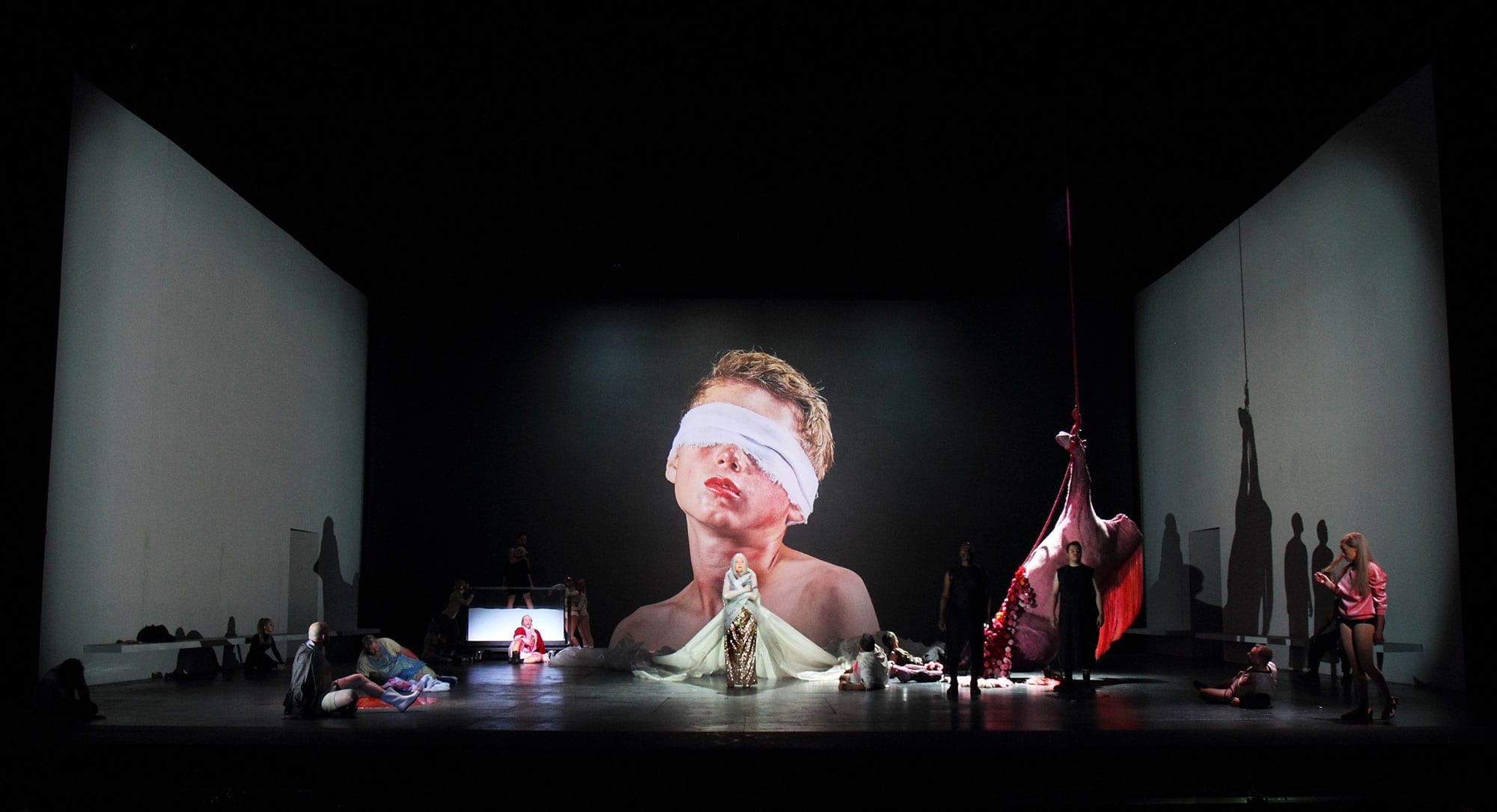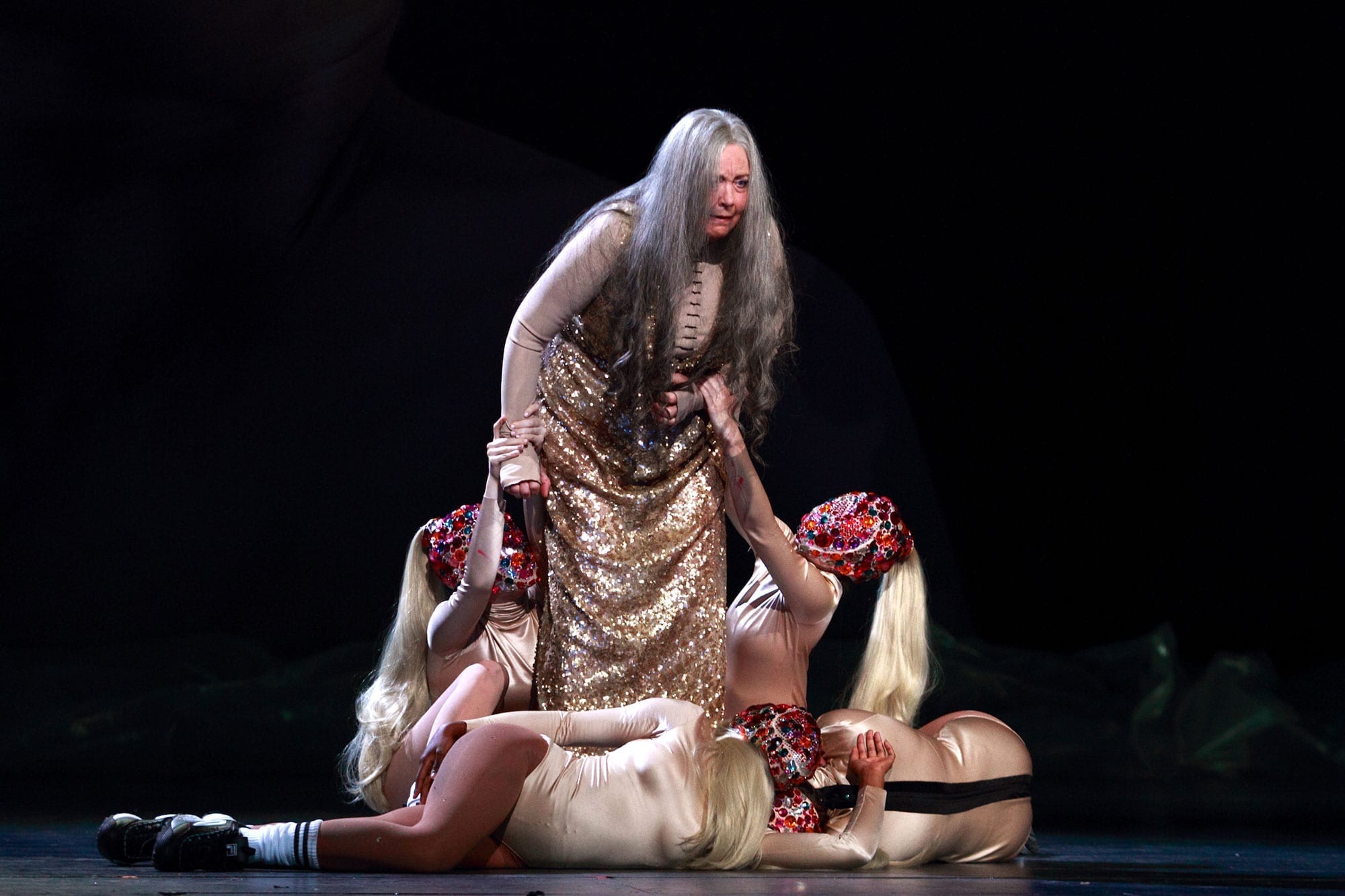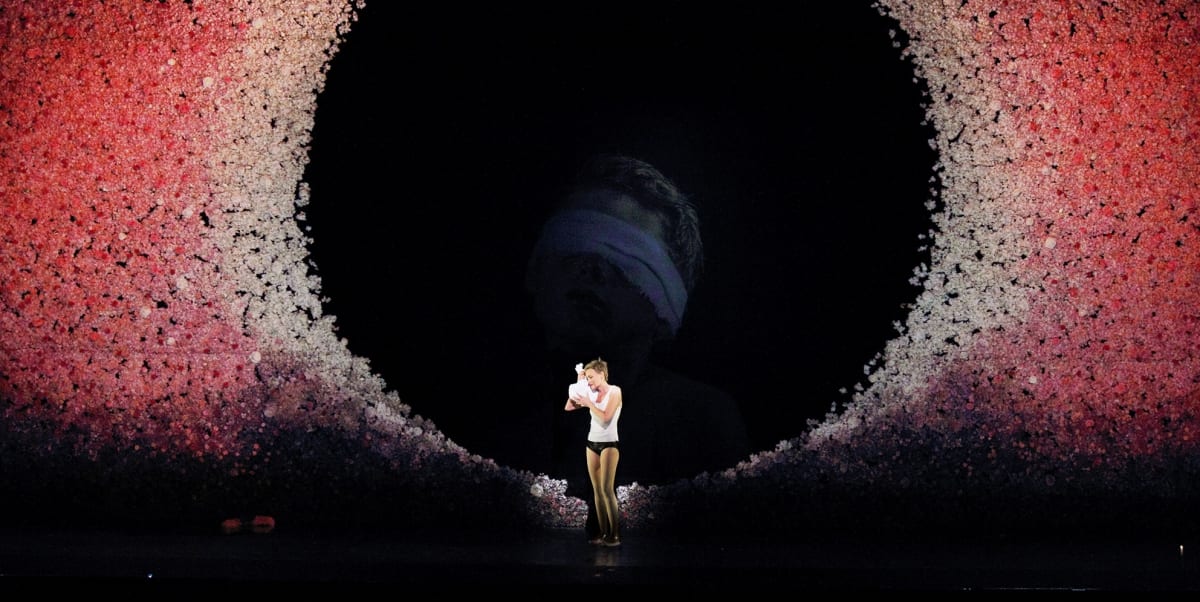First performed in 1905, ‘Salome’ was Strauss’ breakthrough opera, and is still perhaps the most startling despite all the later successes in collaboration with Hofmannstahl. The lurid subject matter gave him the creative stimulus to take Wagnerian orchestration and vocal style a stage further into symbolist melodrama, and in a dramatic framework that should in the right hands still convey a sumptuous, guilty ‘frisson’ and never a dull moment. Not here, alas.
 On the surface it is a simple tale based on scanty original sources: Salome, step-daughter of Herod, ruler of Judaea, becomes fascinated to the point of sexual obsession with John the Baptist, incarcerated below the palace while a raucous dinner takes place above. He rejects her advances and she determines to embrace his head dead, if not alive. The lubricious excesses of Herod’s court are suggested before the latter offers to grant her any request if she dances for him. When she does so, she seizes her chance to insist over Herod’s protests and to her mother, Herodias’ delight, on the head of the Baptist. The opera ends with a parody of a Wagnerian love-death, as she finally gets to kiss the mouth she desires before perishing under the horrified reaction of Herod and his soldiers. Or at least that is what happens in most productions…
On the surface it is a simple tale based on scanty original sources: Salome, step-daughter of Herod, ruler of Judaea, becomes fascinated to the point of sexual obsession with John the Baptist, incarcerated below the palace while a raucous dinner takes place above. He rejects her advances and she determines to embrace his head dead, if not alive. The lubricious excesses of Herod’s court are suggested before the latter offers to grant her any request if she dances for him. When she does so, she seizes her chance to insist over Herod’s protests and to her mother, Herodias’ delight, on the head of the Baptist. The opera ends with a parody of a Wagnerian love-death, as she finally gets to kiss the mouth she desires before perishing under the horrified reaction of Herod and his soldiers. Or at least that is what happens in most productions…
Unfortunately the director and other members of the creative team have imposed a crude feminist interpretation on the opera that renders its central relationships meaningless and added various practical challenges to the singers that inhibit their vocal and dramatic tasks. Salome is reduced to a pouting nymphet who sees the world through the lens of ‘My little pony’. The intelligence of Allison Cook’s singing jarred with the brittle and infantilised interpretation of the role she was required to project. The same could be said of those two ENO stalwarts, Michael Colvin and Susan Bickley, as Herod and Herodias. Both sung very well in roles that are often just barked, but were simply hampered by jarring and demeaning costumes and movement routines that were banal and cringe-inducing. David Soar was less vocally commanding than the Prophet should be, but perhaps this was because his head was attached to a camera that projected his mouth onto a stage screen – a crude and crassly unnecessary demonstration of a theme already amply referenced in text and music. There is nothing wrong in trying to shock: indeed it is something of a requirement in this opera, but to do so you need to go beyond what is already there without importing criteria that are absent from the textures of the original. It is hard to see Salome as much of a victim of patriarchy when she possesses and demonstrates a capricious warped agency throughout, and Herod is such a despised figure of fun from the outset.
 One high point after another passed as anti-climax. The presence and role of the chorus of Jews was opaque, and the Prophet’s denunciations of sensuality, which should be the first high point of the opera, were rendered meaningless. ‘The Dance of the Seven Veils’ was the greatest missed opportunity of all, with Cook required to do little but stroke a baseball bat suggestively while various dancers in her own doll-like image delivered some very basic and coarse choreography. The orchestra at points added colour and verve, but Martyn Brabbins’ best efforts in the pit could not compensate for the absurdities on stage. Even the final scene underwhelmed as the genuine problem of what to do about the head of the Prophet was indefensibly ducked, and the balance between singer and orchestra tilted too far in favour of the latter. The very last sequence parted company with the stage directions indefensibly, and beyond parody. This reviewer shut his eyes in the end and just concentrated on the masterly way in which Strauss develops and extends the dramatic and harmonic tensions in the final five minutes which should leave everyone in the audience wrung out rather than enervated.
One high point after another passed as anti-climax. The presence and role of the chorus of Jews was opaque, and the Prophet’s denunciations of sensuality, which should be the first high point of the opera, were rendered meaningless. ‘The Dance of the Seven Veils’ was the greatest missed opportunity of all, with Cook required to do little but stroke a baseball bat suggestively while various dancers in her own doll-like image delivered some very basic and coarse choreography. The orchestra at points added colour and verve, but Martyn Brabbins’ best efforts in the pit could not compensate for the absurdities on stage. Even the final scene underwhelmed as the genuine problem of what to do about the head of the Prophet was indefensibly ducked, and the balance between singer and orchestra tilted too far in favour of the latter. The very last sequence parted company with the stage directions indefensibly, and beyond parody. This reviewer shut his eyes in the end and just concentrated on the masterly way in which Strauss develops and extends the dramatic and harmonic tensions in the final five minutes which should leave everyone in the audience wrung out rather than enervated.
The orchestra and the singers earn a star each for highly professional performances in adversity, but it is hard to find credit elsewhere in a production whose ideological straitjacket yields a product that is dramatically unconvincing, visually incoherent and – unforgivably – dull.

